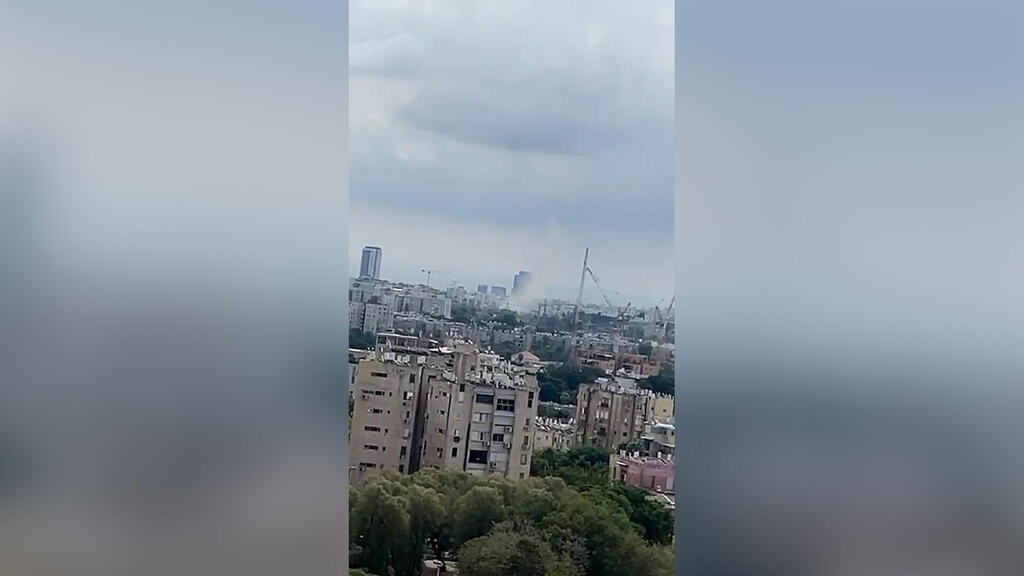Hezbollah appointed a new military command in preparation for a long war of attrition in South Lebanon 72 hours after Israel wiped out its top leadership, Reuters reported on Friday citing two sources familiar with its operations. Hezbollah denied the report.
According to the report, the Iran-backed group still has a considerable stockpile of weapons, including its most powerful precision missiles which it has yet to use, four sources familiar with its operations said, despite waves of airstrikes that Israel says has severely depleted its arsenal.
2 View gallery


Hezbollah flags and photo of slain leader Hassan Nasrallah, in earlier times
(Photo: Aziz Taher / Reuters )
The new command center has kept functioning despite subsequent Israeli attacks, meaning fighters in the south were able to fire rockets and fight according to centrally issued orders, according to the sources, who asked not to be named in order to discuss sensitive matters. A third source, a senior official close to Hezbollah, said the group was now waging a war of attrition.
Another source familiar with Hezbollah's operations said the group's dedicated, fixed-line phone network was "essential" to current communications. Sources have said the network survived attacks on the group's communications in September.
Tunnel warfare
Hezbollah tunnel found by troops near Israel's border
(Photo: IDF)
Hezbollah possesses an extensive tunnel network in southern Lebanon, constructed for the fighting force against Israeli troops and is estimated to be hundreds of kilometers long.
The Hezbollah field commander told the news agency that the tunnels "are the foundation of the battle". Hezbollah had toiled for years to build them, he added. "Their time has come," he said adding that the tunnels found and destroyed by the IDF were built for the Radwan special forces units to one day enter the Galilee region of northern Israel. The source said Israel did not know the full extent of the tunnels.
The source close to Hezbollah said the tunnels detected by Israel were built for its Radwan special forces units to one day enter the Galilee region of northern Israel. The source said Israel did not know the full extent of the tunnels.
Hezbollah says it has stepped up fire in recent days but some Israelis wonder why they launch hundreds and not thousands of rockets and missiles at Israel including their arsenal of power precision missiles. Israeli officials said it indicates the Iran-backed group's difficulty after the devastating blows inflicted on it.
Prior to the latest conflict, the World Factbook of the U.S. Central Intelligence Agency said Hezbollah possessed upwards of 150,000 missiles and rockets.
The two sources said Hezbollah had chosen not to use its most potent rockets - including precision-guided missiles - to keep something in reserve for a long war and to avoid giving Israel a pretext to widen its strikes to Lebanese infrastructure, such as Beirut airport, roads and bridges.
The third source said the group had not targeted Israel's cities, such as Tel Aviv, with its most powerful weapons because such a move would give Israel a reason to hit Lebanon even harder.
Chief of Staff Herzi Halevi and Shin Bet chief Ronen Bar visited the troops operating in South Lebanon on Thursday. "We are fighting not just to bring security to the north now but also with a look toward the future," Halevi said. "If someone tries to rebuild these villages, he may consider it wrong to build terror infrastructure that would only be destroyed by the IDF."
Bar said Israel cannot defend its citizens by building shelters and must fight where the terrorists are. "In a peaceful border, you guard your side of the frontier. Where there is war, you operate on both sides," he said. "We've observed Hamas entrenching in Lebanon and they will grow in number when terrorists leave Gaza. We will keep hunting them wherever they are," he said.
Get the Ynetnews app on your smartphone:




